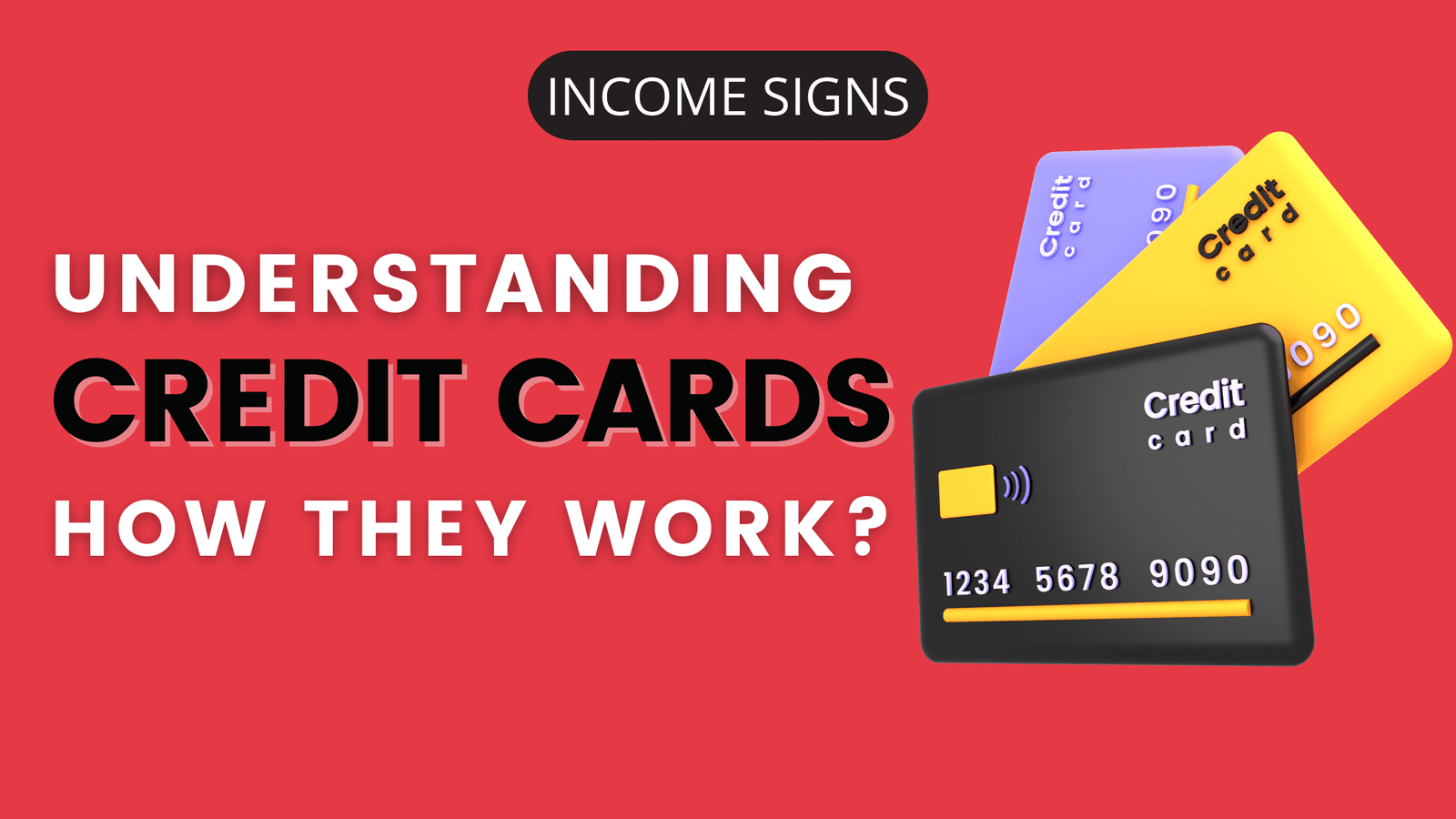What is a Credit Card?

A credit card is a financial instrument that individuals can use to purchase goods and services on credit, allowing them to pay for items after they have been purchased.
They are issued by banks or other financial institutions and allow users to borrow up to an established limit.
Credit cards are usually made of plastic, with a magnetic strip on the back that stores personal information about the cardholder.
This information includes the cardholder’s name, address, and account details. This information is then used to validate transactions when making purchases.
In order for cardholders to make purchases using their credit cards, they must be approved for a line of credit from the issuing bank or another lender. This credit line will determine how much money can be borrowed and spent using the card.
As long as cardholders make their payments on time and stay within their spending limits, they can continue to benefit from additional lines of credit and rewards programs associated with their cards.
However, if payments are not made in full or are late, interest charges may be incurred which could result in financial difficulties.
Credit cards can also provide additional benefits such as rewards points or cash-back programs that allow users to accumulate points or earn cash back when making certain types of purchases.
Many cards also offer travel perks such as discounted hotel stays or airline tickets as well as access to special events and exclusive deals at restaurants and stores.
Many credit cards come with fraud protection that provides consumers with peace of mind in cases of fraudulent activity on their accounts.
Knowing all these facts about what a credit card is is helping people make informed decisions about which type of credit product works best for them based on their needs and spending habits.
Advantages of Using a Credit Card

One of the main advantages of using a credit card is the convenience it provides.
With a credit card, you can make purchases from virtually anywhere in the world, and you don’t have to worry about carrying around cash or worrying about having enough money with you when you need it.
Most credit cards offer reward programs that allow users to earn cash back or points every time they make a purchase with their card.
This can be an excellent way to save money on purchases for everyday items such as groceries and gas, or for more expensive items like vacations and electronics.
Another great benefit of using a credit card is its ability to help people establish a good credit history.
When used responsibly – meaning making payments on time and not carrying high balances – using a credit card will help people build up their score over time since payment history is one of the biggest factors that determine your score.
This can be beneficial when trying to secure loans, mortgages, and other financial products which often require good credit history in order to qualify for better rates.
Credit cards also offer protection against fraudulent activity by providing users with zero liability protection should their card ever be lost or stolen.
Credit card companies typically take care of any fraudulent charges on your account so you don’t have to worry about being liable for those charges if they occur.
Lastly, many credit cards come with added perks such as travel insurance coverage, extended warranties, roadside assistance, access to exclusive offers and discounts, and more.
These benefits can provide extra peace of mind while traveling or making large purchases knowing that if something unforeseen happens, there are protections in place with your credit card company that will help you out financially.
Understanding Different Types of Credit Cards
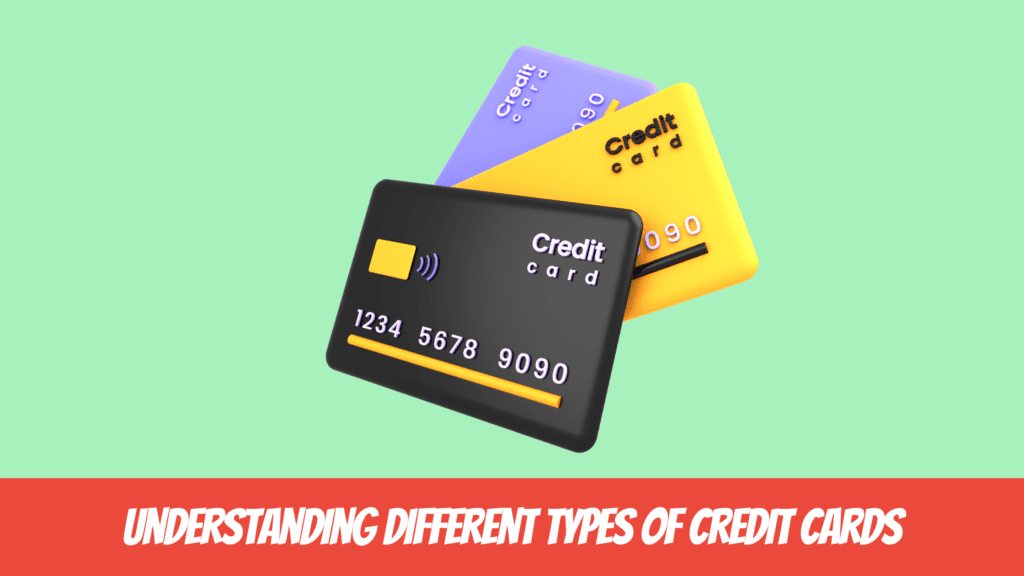
Credit cards are a great tool for managing your finances, making purchases, and even earning rewards. However, not all credit cards are the same.
Each type of card offers its own benefits and drawbacks, and it’s important to understand the differences between them in order to make an informed decision when choosing one.
The most common type of credit card is a traditional bank-issued card. These cards usually come with low-interest rates and fees, but they may also require a higher credit score in order to be approved.
These cards can offer perks like cash back or reward points that you can redeem for merchandise or travel discounts. They might also come with additional benefits such as complimentary car rental insurance and purchase protection.
Store-branded credit cards can be another good option if you’re looking for a more specialized form of a credit card.
These cards are offered by particular stores or brands, and they often provide exclusive discounts on certain items or services that are regularly purchased from those retailers.
Some store-branded cards may even offer rewards programs with bonus points for shopping at those stores or their affiliated partners.
Though less common than other varieties of credit cards, secured credit cards require an upfront deposit before using them like an unsecured card would work.
This deposit is held as collateral against any defaults on payments made with the card and is generally refundable upon closing the account in good standing with no outstanding balance owed.
Most secured credit cards have fewer features than traditional bank-issued ones do; however, they can be useful for individuals who want to rebuild their poor credit scores after financial mismanagement problems in the past.
Small business owners may consider applying for a business credit card instead of a personal one when making purchases related to their enterprise activities.
Business credit cards typically offer more beneficial terms than standard consumer banking products such as lower interest rates, higher available spending limits, access to exclusive discounts from merchant partners, and rewards savings opportunities on select items or services specific to running the company operations efficiently.
Expenses charged to a business card can be deducted from taxes at the end of each financial year since it’s considered part of business costs incurred while conducting daily activities associated with running the company operations effectively.
Ultimately, it’s important to weigh your options carefully before deciding which type of credit card is right for you depending on your individual needs and budget requirements.
Consider researching different deals based on fees, interest rates, and rewards programs offered by various issuers before committing to one particular product that best suits your lifestyle needs so you won’t regret your decision down the road when things don’t go according to plan due to unforeseen circumstances beyond your control in the near future either financially or otherwise.
Financial Benefits and Pitfalls of Using a Credit Card
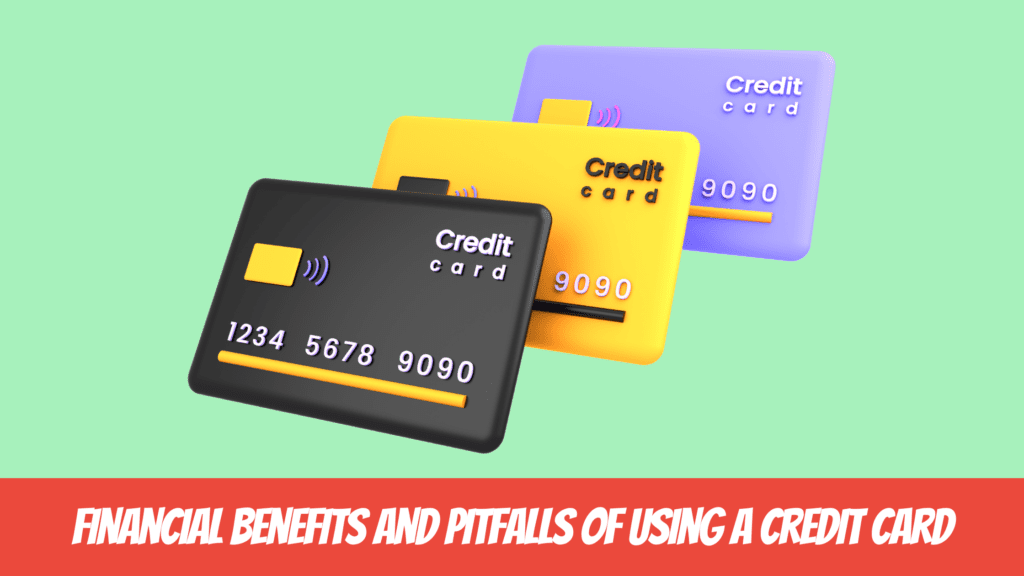
Financial Benefits of Using a Credit Card
Using a credit card can be an excellent way to manage your finances and make purchases without having to worry about carrying cash.
Having access to a credit card allows you to purchase things without having the actual money in hand, which can be especially useful if you are short on funds or need to make a large purchase that would otherwise be difficult for you to afford.
Credit cards also offer various rewards such as cash back, discounts, travel points, and much more. Many credit cards offer introductory bonuses or zero-interest rates for the first few months of use.
Using credit cards responsibly can help build your credit score over time, making it easier for you to get approved for financing in the future.
Pitfalls of Using a Credit Card
The most obvious downside of using a credit card is the potential to incur debt if you don’t manage your usage responsibly.
High-interest rates on unpaid balances can add up quickly and become difficult to pay off. It’s also important for users to keep track of their spending as it’s easy to underestimate how much you charge each month and end up with unexpected bills that may take months or even years to pay off.
Many retailers add extra fees when customers pay with credit cards instead of other payment methods such as cash or checks. If your card is ever lost or stolen, it could put you at risk of identity theft or fraud if someone else gains access to your account information.
How to Apply for a Credit Card
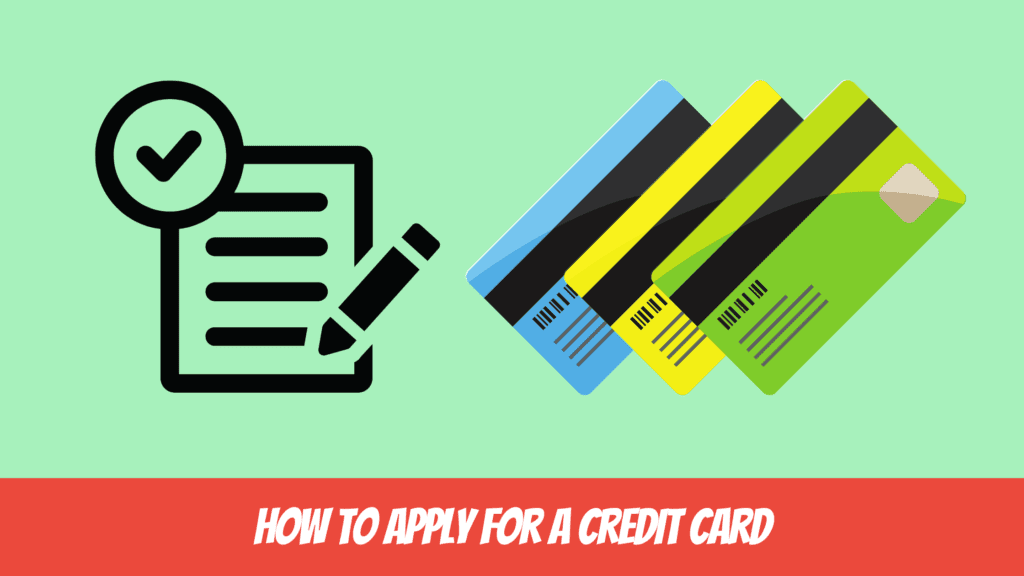
If you’re interested in applying for a credit card, you’ll need to make sure that you have the right information and documents before getting started.
Applying for a credit card is not a difficult process, but it does require some preparation and understanding of how to go about it. Here are some steps you can take to make sure that your application is successful:
1. Know Your Credit Score
Before applying for any type of loan or credit product, it is important to know what your current credit score is so that you can understand if the lender will be willing to extend the offer.
You can get your free credit report from multiple sources online and this should give you an indication of where your score sits and whether or not lenders will be likely to accept your application based on this information.
2. Choose the Right Credit Card
There are many different types of credit cards available, including those with rewards such as cashback or air miles, or cards with low-interest rates such as balance transfer cards.
It is important to find the right card that meets your needs and fits within your budget.
3. Gather the Required Documents
Before applying, you will need certain documents such as proof of income, identification documents such as a passport or driver’s license, and other financial information such as bank statements and utility bills.
Have these ready when you apply so that the process goes smoothly and quickly.
4. Check Terms & Conditions
It is important to read through the terms & conditions of any product before signing up for it – this includes both interest rates, annual fees, and any reward points structures associated with the card.
Make sure that you understand all aspects of the agreement before submitting your application so that there are no surprises down the line when it comes time for repayment!
5. Submit the Application
Once all information has been gathered together then it’s time to actually submit an application – usually, this can be done online but may also be done over the phone or in person depending on which provider you are using or the location they operate in.
Once submitted keep an eye out for emails/letters confirming acceptance – this should happen relatively quickly but could take up to 2 weeks depending on the volume of applications received by a provider at the same time!
6. Monitor Your Account Activity Regularly
After being accepted onto a new credit card account it’s important to keep track of all transactions made using this card – most providers offer online access where customers can view purchase history along with statement dates & payment due dates, etc., so use these tools regularly!
Monitoring activity regularly allows customers to stay informed about their spending habits plus help prevent fraud & identity theft in case anything suspicious appears on the monthly statement review!
Evaluating Fees and Interest Rates Associated with Credit Cards

Evaluating Fees and Interest Rates Associated with Credit Cards is an important step in the process of selecting a suitable credit card.
In order to make an educated decision when it comes to choosing the best credit card for your needs, it is essential to understand all of the associated fees and interest rates that come along with any card you may be considering.
When looking at interest rates associated with credit cards, there are two primary types to consider: variable-rate and fixed-rate.
A variable-rate credit card means that the rate can fluctuate over time depending on external factors such as the prime rate set by the Federal Reserve Bank or other economic conditions. On the other hand, a fixed-rate card’s Annual Percentage Rate (APR) will not change over time.
Knowing which type of rate applies to each particular credit card is essential in order to make an informed decision.
In addition to understanding what type of APR applies to your potential credit cards, it is also important to pay attention to any additional fees or charges that apply.
Most commonly, these include annual membership or maintenance fees, balance transfer fees, foreign transaction fees, cash advance fees, and late payment fees.
It is important for consumers to understand that most of these additional charges can add significantly to their monthly bill if they are not aware of and careful about them when applying for new cards.
When evaluating different interest rates and fees associated with various credit cards it is also important for consumers to look into any introductory offers or promotional rewards programs offered by certain issuers.
This can be a great way for consumers to experience benefits from a new card without having to pay full price upfront.
However, it is essential that they take note of any expiration dates associated with such offers so they don’t end up being surprised later on down the line by unnecessary costs due to missed deadlines or expired deals.
Securing Your Credit Card Information

Protecting your credit card information is essential to keeping your financial data safe. A few simple steps can help you keep your credit card numbers and other sensitive information secure.
One of the most important steps to safeguarding your credit card information is to protect the physical credit cards themselves.
Never leave your cards unsupervised and make sure that when not in use, they are kept in a secure place like a wallet or purse, or somewhere where only you have access.
Always be aware of your surroundings when using a credit card, especially at point-of-sale locations where others may be able to see your number and other sensitive information. If using digital payment options, make sure you are entering the valid website address for each digital payment platform.
When making online purchases, always look for the HTTPS protocol as this indicates that the company has implemented extra safety measures to ensure that all transactions are secure.
It’s important that you create strong passwords for all online accounts associated with your credit cards such as bank account websites, mobile payment applications, and e-commerce stores.
Passwords should contain a mix of letters (both upper-case and lower-case) and numbers while also avoiding common words or phrases.
Similarly, make sure not to share any personal information with anyone else online as this could be used by malicious actors to gain access to your accounts.
It’s also important to review all monthly statements thoroughly for any unrecognized transactions or suspicious activity.
By regularly monitoring your accounts this way you can quickly identify any fraudulent activities so that appropriate steps can be taken immediately such as filing a dispute with the merchant or canceling the card altogether if necessary.
By following these tips you can ensure that all of your credit card data remains secure from malicious actors and safeguard yourself against potential financial losses due to fraudsters obtaining access to unauthorized accounts or using stolen information for their own personal gains.
Taking these precautions will not only help protect your finances but also give you peace of mind knowing that everything related to your credit cards is properly secured.
Establishing Good Financial Habits Through Responsible Use of Credit Cards
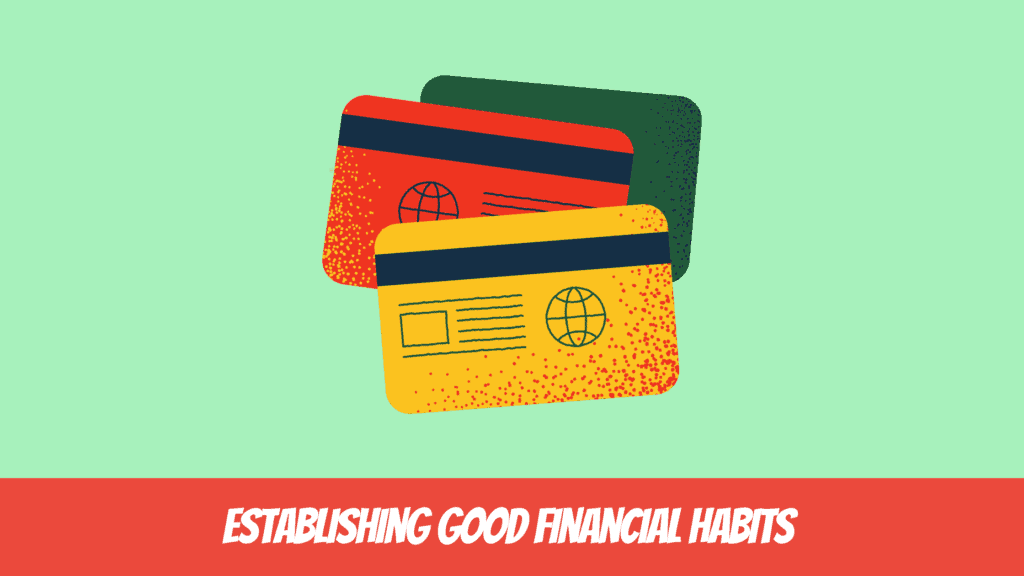
Establishing good financial habits is an essential part of achieving financial success in life. One of the key components of establishing sound financial habits is learning to use credit cards responsibly.
Credit cards can be a powerful tool when used correctly, but they can quickly become a liability if not managed properly.
Building a good credit history and maintaining healthy credit card balances are critical components of establishing good financial habits.
Paying off your credit card balance each month ensures that you are not accumulating interest charges on your purchases and helps build positive credit history.
It’s important to stay within your means so that you don’t incur debt for things you cannot afford or make more purchases than what you have the money for.
Consider creating a budget that accounts for your regular expenses and discretionary spending. This will help keep track of your finances and ensure that payments towards your credit cards are made on time each month.
Another important consideration in the responsible use of credit cards is avoiding the high fees associated with them.
Many times people end up paying more in fees than they would have without using the card in the first place, so research different cards thoroughly before signing up to make sure all associated fees are reasonable and manageable.
Monitoring your spending closely is important. Many banks offer online portals where customers can view their current balance as well as recent transactions, making it easy to stay on top of any potential issues before they arise.
When trying to establish good financial habits through responsible use of credit cards it’s wise to take advantage of rewards programs offered by certain companies (if available).
Cash back rewards or airline miles accrued from regular use of one’s card can provide great incentives while simultaneously helping one maintain control over their spending while building their overall credit score over time.
Preparing for Emergencies with A Line of Credit

For those looking to have a backup plan in the event of unforeseen financial emergencies, a line of credit can be an excellent tool.
A line of credit is essentially a loan that you can use as needed and then pay back over time with interest.
It’s important to note that lines of credit typically require good credit standing and may also have restrictions such as a maximum amount that can be borrowed at any given time.
Having access to this line of credit, however, could provide a safety net if ever you find yourself in an emergency situation and need financial assistance quickly.
It’s important to remember that when using lines of credit, the same responsible habits should be followed as with regular credit cards. Otherwise, an individual may find themselves accumulating more debt than they can handle.
As with any loan, it’s important to ensure that payments are made on time each month and not overspend.
It’s also a good idea to pay off the loan as soon as possible in order to minimize interest charges. This will help maintain positive credit history and keep your financial status on track.
Factoring Your credit Standing into Your Financial Decisions
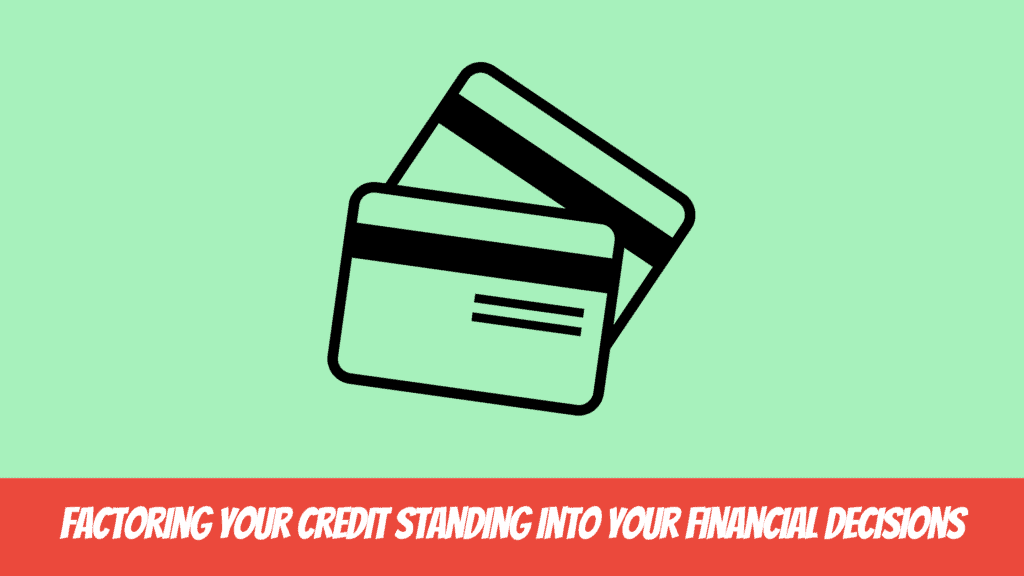
Your credit standing can have a major impact on your financial decisions.
It’s important to maintain a good credit score in order to qualify for loans and other forms of credit, and it’s also important when considering things like renting an apartment or getting insurance coverage.
Taking the time to understand how your credit standing affects you financially is key. This includes tracking any changes in your score and understanding why certain changes have occurred.
It’s important to be aware of the different types of credit available so that you can make informed decisions about which type is best suited for you.
Keeping up with regular payments and using your credit responsibly is also essential. This will help ensure a positive credit standing and give you access to better financial opportunities in the future.
Conclusion
In conclusion, understanding credit cards, lines of credit, and your credit standing are all important components when it comes to managing your finances effectively and responsibly.
By taking the time to research different options and learn about their features, you can make informed decisions that will help ensure a secure financial future.
With the right knowledge and habits, you can use credit as a tool to build your financial standing.
Happy learning!
Hope this helped! Good luck!
